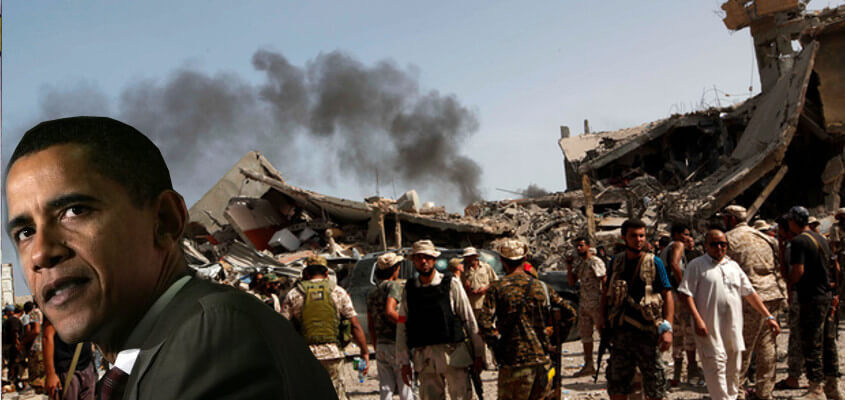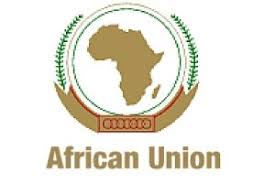Paternalistic U.S. government political posturing toward Africa has a history of turning into fatal consequences for the masses of African peoples. A decade ago, several of the same individuals who now hold positions in the Biden administration were accomplices in the U.S.-led NATO
decimation of Libya, which was rationalized under the guise of protecting “pro-democracy” activists from massacre by the so-called dictator Colonel Muammar Gadaffi. Hiding behind a modern-day version of the “White Man’s Burden,” otherwise known as “Responsibility to Protect” or R2P, the United States and its NATO allies killed and maimed thousands of Libyans, with U.S. leaders like Secretary of State Hillary Clinton taking special satisfaction in the sadistic video recording of Gaddafi’s murder.
Given the catastrophic effects of the U.S.-NATO intervention in Libya, the
Black Alliance for Peace ’s U.S. Out of Africa Network and BAP member organization Horn of Africa Pan-Africans for Liberation & Solidarity (HOA PALS), condemn, under no uncertain terms, any and all forms of intervention and meddling in the conflict in Ethiopia. As it did against Libya, U.S. imperialism is weaponizing disinformation and misinformation to exploit and distort the complexity, historical context and political realities in the Horn of Africa to create the pretext for more direct intervention.
“Should those responsible for undermining a resolution of the crisis in Tigray fail to reverse course, they should anticipate further actions from the United States and the international community. We call on other governments to join us in taking these actions.” — U.S. Secretary of State, Antony Blinken, May 23, 2021 press statement
The attack on the federal base by the Tigray People’s Liberation Front (TPLF) that started the conflict is now being used as a de-facto instrument of U.S. policy in Ethiopia to justify “humanitarian intervention.” In this way, the primary contradiction in the Tigray region reflects broader dynamics in the Horn of Africa as a whole and can be boiled down to the common denominators of global capitalist hegemony and Western imperialism by way of its proxy actor, the TPLF. Western powers only curtail the right of self-determination for the Horn of Africa and Global South states.
“U.S. imperialism is weaponizing disinformation and misinformation to exploit and distort the complexity, historical context and political realities in the Horn of Africa.”
We condemn all military violence, extrajudicial killings, sexual violence, displacement, theft, discrimination, harassment and intimidation perpetrated on innocent Tigrayans, as well as any and all unnecessary violence perpetrated on other Ethiopians and Eritreans in the ongoing conflict as a result of their ethnic, religious, or national identity, refugee status or political affiliation. We unequivocally support and uplift mutual cooperation, solidarity, and peace among all parties and people in Ethiopia, Eritrea, and the broader Horn of Africa region.
We support African-led, localized conflict resolution that is not tied to advancing imperialism, neo-colonialism or any other nefarious Western agendas. We believe in the inherent agency and ability of Africans on the continent to reach a resolution to the conflict peacefully and independently of Western aggression, destabilization, and extractive and exploitative economic interests.
The United States and its EU-NATO allies know no compassion or genuine concern for the Black lives in Ethiopia, the Horn of Africa or anywhere else Black people are in the world. Their true concerns are always selfish, racist and reflective of their objective geopolitical interests. In Ethiopia and Eritrea, their interests are:
- To control or have undue influence over the Bab el-Mandeb Strait, a chokepoint critical to securing global energy;
- to challenge the robust presence of China ; and
- to impose AFRICOM in the only country left in Africa that has evaded its control, Eritrea.
Africa is not underdeveloped and fraught with militarized instability because there is not enough involvement by Western Europe and its evil settler-colonial spawn, the USA. Anyone who believes that must also believe Africans are inferior savages. The fact is Africa is underdeveloped and destabilized precisely because of centuries of European colonialism and decades of U.S. and Western European neocolonialism. Any disposition held by Africans that lends legitimacy to intervention, sanctions, or the fake moral or altruistic dominion of Pan-European, white supremacist capitalist interests in Africa are based either on severe ignorance or treacherous opportunism.
U.S. foreign policy in Africa always involves enveloping any part of the continent that poses a threat to its geostrategic interests into its sphere of forever wars. In 2011, Black anti-imperialist forces were unable to effectively counter the plan by the U.S./EU/NATO Axis of Domination to destroy the revolutionary Pan-Africanist nation of Libya. This was partially because the action had the political cover of the first Black president, which confused and disarmed left opposition and made them objective collaborators with U.S. reaction.
BAP’s U.S. Out of Africa Network and Horn of Africa Pan-Africans for Liberation & Solidarity refuse to allow this fatal mistake to be made again.









/cloudfront-us-east-2.images.arcpublishing.com/reuters/Z5YL2TEUUJLT7FQWDQQ5GQPKTQ.jpg)
/cloudfront-us-east-2.images.arcpublishing.com/reuters/GEC5KKORYJN6TB5RBOW7OAED5Q.jpg)